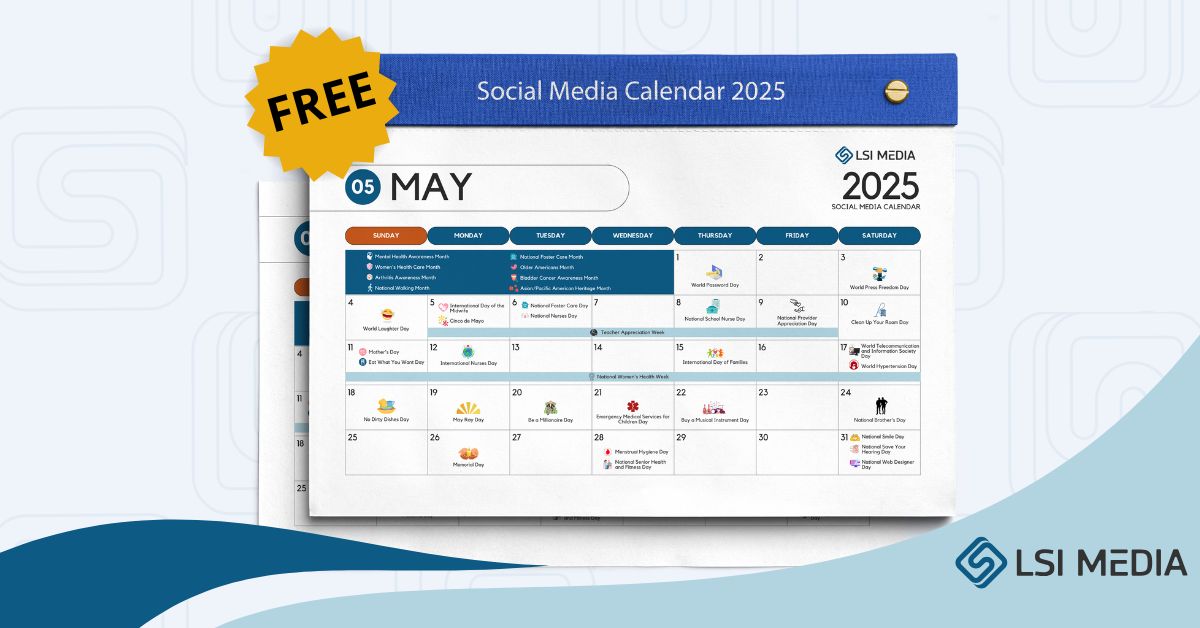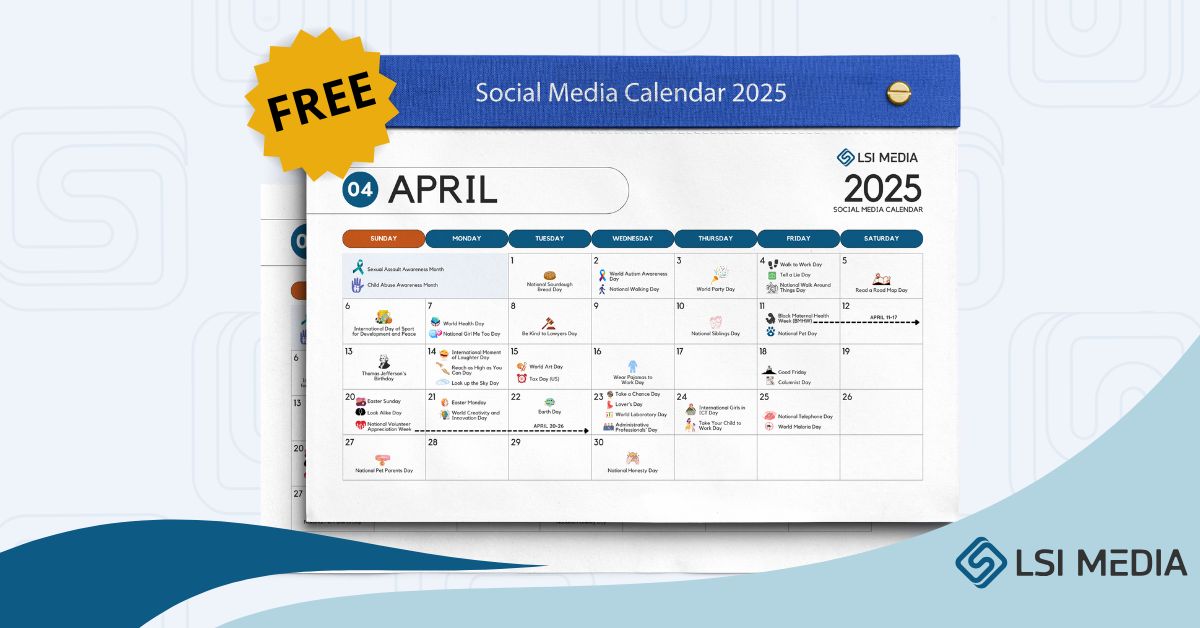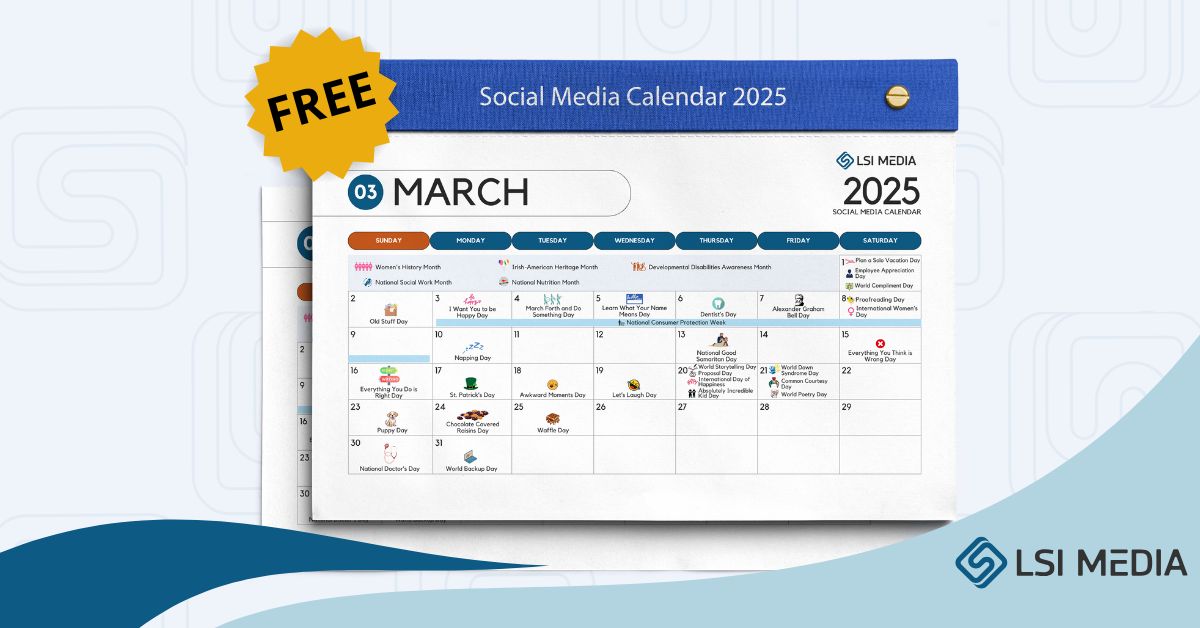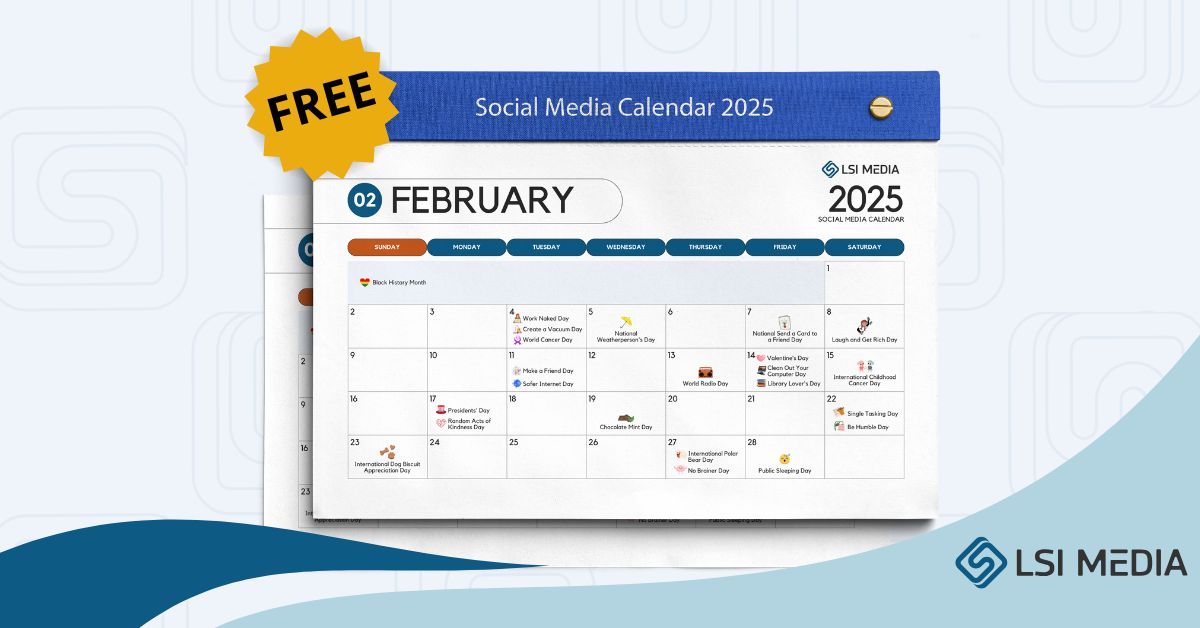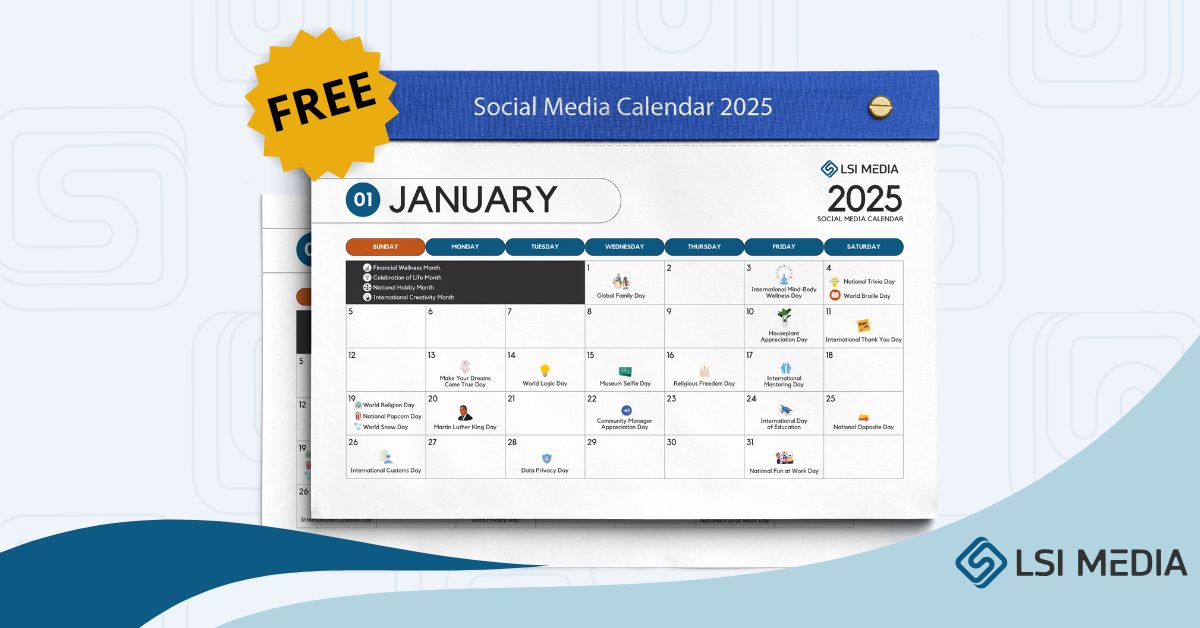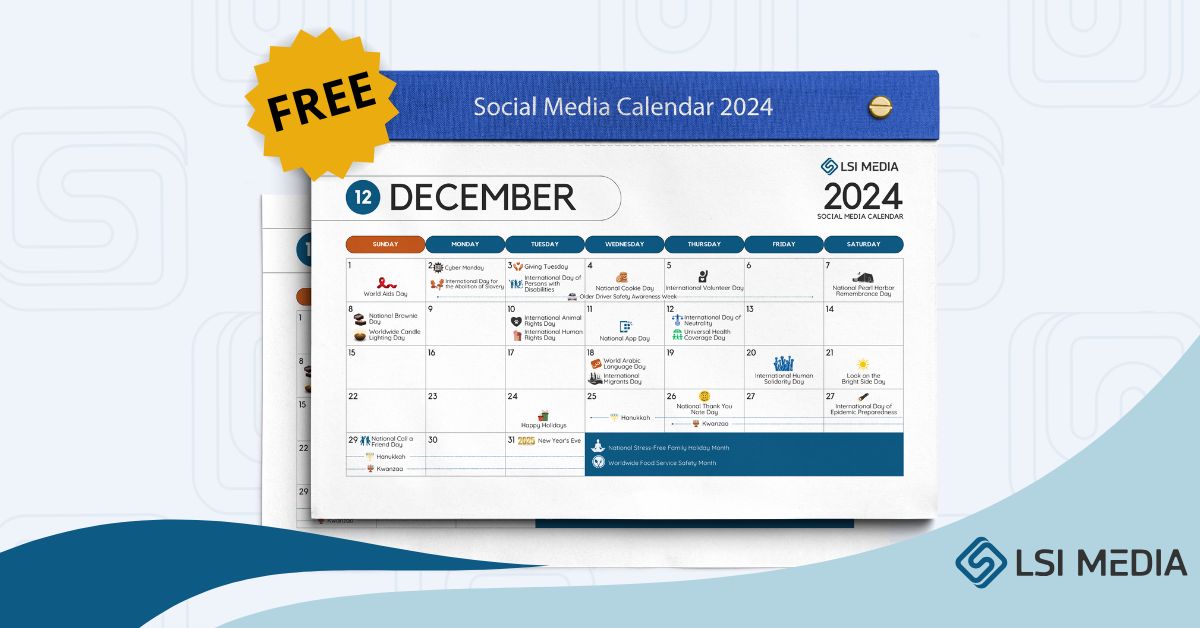[ez-toc]
Traditional marketing strategies just aren’t cutting it in today’s ever-changing world and this is especially true in the realm of Business-to-Business Marketing. Some efforts resonate well with customers while others just don’t seem to connect as planned. Discover why your B2B marketing budget is even more critical to your success in 2021 and beyond.
-LSi Media
Enough with the negativity and clichés. What have you learned in the last year?
Most companies have learned that B2B marketing budgets are much more important than they thought – and that their existing marketing strategies, well, kind of sucked.
Look, we all knew B2B marketing had plenty of problems long before COVID-19:
- Generic, bland, and forgettable content
- Impersonal ads and digital experiences
- Poor use of technology and automation
- Ambiguous ROI and direct relationship to sales
- Ignorance to buyers’ evolving needs
- Neglecting customer retention to focus on lead generation
It wasn’t until the pandemic-induced recession (yes, it’s technically a recession) that B2Bs were forced to prioritize fixing these problems. That’s exactly what we’re seeing today. Let’s reflect on the year and evaluate the tools available to move forward.
Quick Takeaways:
- Although revenue and general spending shrunk, B2B marketing budgets more or less remained intact. Executives and higher-ups finally understand the value of a comprehensive, multi-touchpoint digital marketing strategy.
- B2B organizations are breaking unhealthy habits and updating their approach as they adapt to shifting buyer expectations and behavior. We’re seeing a shift away from calendar-year budgets and planning in favor of short-term and more agile endeavors.
- B2Bs don’t have time or money for tactics that don’t drive revenue. Marketers now must prioritize quality across the board and find new ways to prove results.
- You can put your organization on the right path by leaning into high-quality content, interactions, and experiences across multiple platforms with our 13-point checklist.
Some Good News: B2B Marketing Budgets Appear Unscathed
Without downplaying 2020’s casualty count in other areas, it seems we reached an equilibrium where B2B marketing budgets appear unscathed at least. It’s important to mention here that we have several studies and surveys on B2B marketing budgets to consider, so let’s examine them all and look for some general themes.
In April, as the first round of shutdowns set in, 72% of B2B marketers said they expected overall budgets to either increase, remain the same, or decrease by less than 20% over the rest of the year. According to that piece of research, marketers expected to cut their events budget and relocate the funds to other digital avenues like content, webinars, social media, and online events.
Research from eMarketer released in August projected B2B ad spending to grow by 22.6% this year as well. Researchers and analysts with eMarketer attribute this to the shift towards content and online events which often need to be paid promotional channels to reach new audiences. Makes sense. Some of the most objective research comes to us in the form of two studies from Deloitte-Duke University and LinkedIn-Edelman.
The LinkedIn-Edelman study reports that executives are prioritizing four key areas:
- Content marketing (59%)
- Expertise-based thought leadership (55%)
- Virtual events and webinars (52%)
- Executive communications (44%)
But there’s a catch. With revenue generally declining, marketing activities are facing heightened scrutiny for direct sales impact. Deloitte meanwhile surveyed CMOs to gauge their responses to 2020. Over 62% of marketers said their jobs increased in importance this year. Although overall budgets have decreased, CMOs report that marketing is receiving a larger share of the pie. Nearly a third say their budgets have not changed at all.
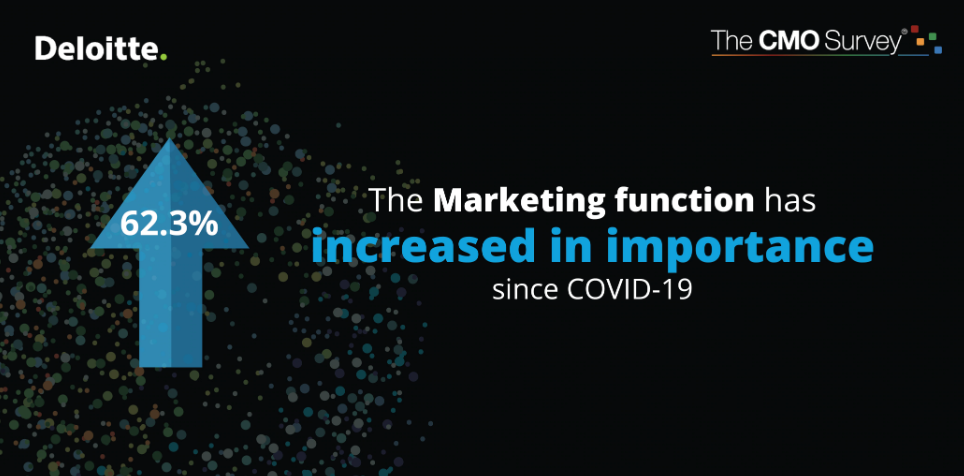
Does Your B2B Marketing Budget Have You Prepared for Stiffer Competition?
The digital marketing landscape looks totally different than it did in 2008 during the last crash. Marketers have so many more tools and pieces of technology with advanced capabilities at their disposal – like artificial intelligence and account-based marketing software. Imagine how brands could have responded to the 2008 recession with the same tools available today.
You might be confident in your current strategy, but you’re also facing much stiffer competition in terms of content, events, social media, and general attention. Research from Google reports that a whopping 45% of B2B brands started using digital tactics for the very first time since COVID-19 upended in-person life. Across the board, 88% doubled down on digital. Is your B2B marketing budget adequate to withstand the onslaught of content, events, and social media coming from your competition? Or are you just contributing to the noise?
There is No “New Normal” for B2B Marketing Budgets and Planning
Contrary to the cliches, there’s nothing new or normal about today’s reality facing B2B marketing, budgets, and planning. Pandemic disruptions haven’t necessarily created new problems – they’ve only forced deeper cracks in the existing ones. The B2B marketing landscape has changed remarkably since digital tactics exploded inaccessibility. Specifically, buyer expectations have changed. Buyers are young, grew up on the internet, and expect personalized – human – experiences.
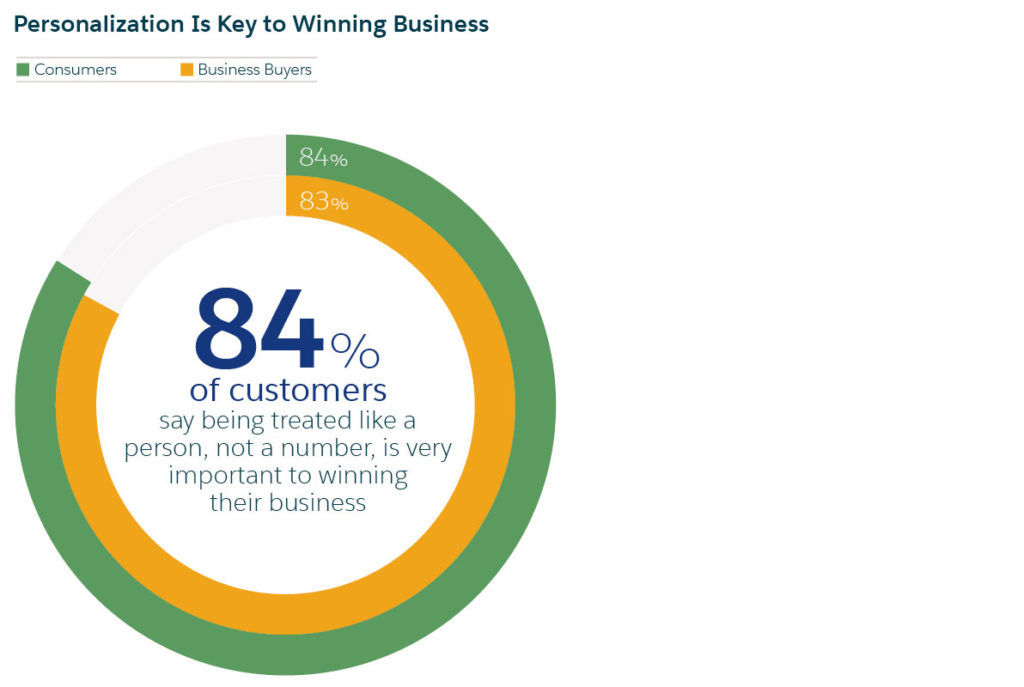
Nevertheless, until 2020, B2B marketers were still going to bat with the same tired tactics from the early 2000s: gating content, forcing buyers into rigid persona boxes, pumping out generic content for SEO, and so on.
Anyone continuing those outdated tactics today is doomed. Fortunately, we see a few common themes emerging as B2B marketing budgets, planning, and strategies shift:
- Shorter planning cycles
- Actually, acknowledging dynamic customer/buyer needs
- Grasping each brand’s unique reality
Shorten That Planning Cycle
Annual B2B marketing budgets are inflexible. Your buyers’ habits don’t remain static over the calendar or fiscal year. Instead, organizations should consider planning quarterly 12-week budgets with evaluations to track the results and market environment. Agility is key. Until the economy levels out (as much as it can), your organization might find it useful to plan budgets and strategies monthly.
Focus on Dynamic Customer Needs
Your B2B marketing budget and strategy should focus on your audience’s unique and dynamic needs. Today, we see many B2B companies shifting away from product-driven messaging and lead generation in favor of customer retention. Again, an over-emphasis on lead generation and customer neglect was an unaddressed problem in B2B marketing long before the pandemic. B2Bs should absolutely keep improving the experience for existing customers.
Evaluate YOUR 2020 Objectively
No one faces the same reality today – not your competitors, you, or any of your buyers. Marketers can’t compare their results, B2B marketing budgets, and tactics to others. It’s on each of us to evaluate our company’s own unique standing and buyer needs if we want to succeed and grow. Look over your 2020 objectively. What worked and what went wrong? What can you do to improve or pivot for 2021?
B2B Marketing Budgets and Your Lucky 13-Step Action Plan
It’s 2020 – why wouldn’t 13 be lucky?
Using what we’ve learned over the year about changing B2B marketing budgets, planning, and strategies along with dynamic customer needs, these are the areas marketers should prioritize for 2021.
- Set new objectives and KPIs
- Expand social media strategies
- Embrace hybrid events
- The shift from lead gen to customer retention
- Boost content integrity
- Optimize the website experience
- Care more about mobile
- Be human and a force for good
- Audit your martech
- Hone your video and media strategy
- Adjust and adapt PPC campaigns
- Prioritize account-based marketing
- Care about accessibility now or pay later
Set New Standards
You can’t use the same metrics and KPIs anymore. With more attention to direct ROI, marketers must consistently evaluate their results and methods for tracking.
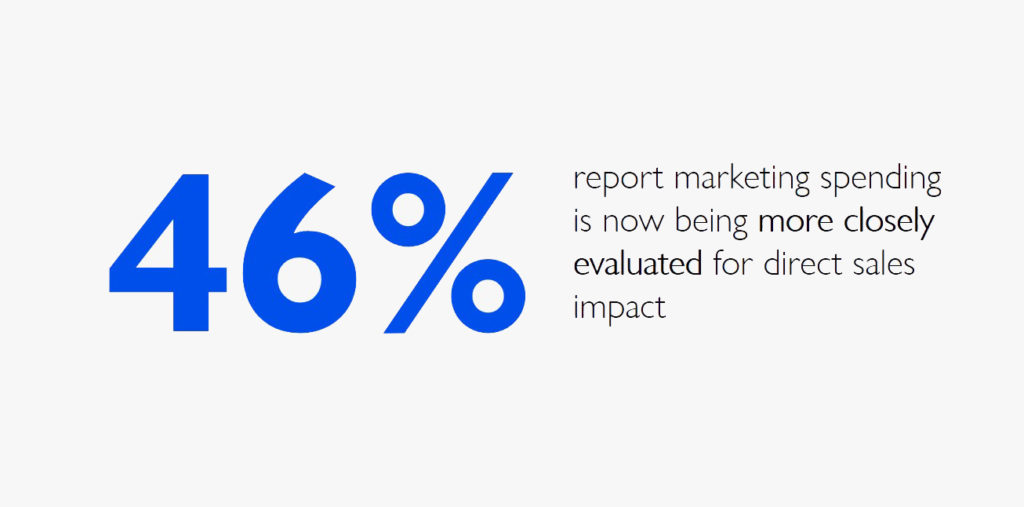
What to do: Evaluate your current KPIs and system for monitoring performance. Prepare for heightened scrutiny from higher-ups. Use tools like CRM and another AI-driven tech to streamline data analysis and draw insights across multiple platforms.
Nuanced Social Media Strategies
Unsurprisingly, social media spend jumped by 74% during the pandemic. What you might not realize, however, is that B2B marketing budgets are flowing to unorthodox platforms by B2B standards like Reddit and Quora.
What to do: Focus less on broadcasting content from business accounts and more on person-to-person interactions. Promotional content will get you instantly banned from Quora communities and subreddits so lean into social media’s intended purpose instead.
Hybrid Events as the Norm
Don’t expect in-person conferences to return until at least mid-2021. Even then, it won’t be in-person vs. virtual but hybrid events. Livestreams, augmented reality, touchless elements, and digital marketing will become the norm.
What to do: Don’t force events just for their own sake. Only host when you have a genuinely interesting and engaging topic to cover. Consider hiring or training someone to properly organize and market hybrid events.
Heightened Focus on Customer Retention
The overwhelming focus on lead gen instead of retention has been the elephant in the room for quite some time. B2Bs must acknowledge each customer’s unique needs and make accommodations for them.
What to do: Look for fresh routes to impress or support your customers – especially if they’re struggling. Flexible payment schedules, resource hubs, VIP channels, and rewards programs are all great, but it depends entirely on YOUR customers. Bear in mind, they’re not homogenous either.
Less Content, But Better
B2B marketing budgets often shifted to content this year and away from events. Top goals achieved via content as of July include brand awareness and credibility:
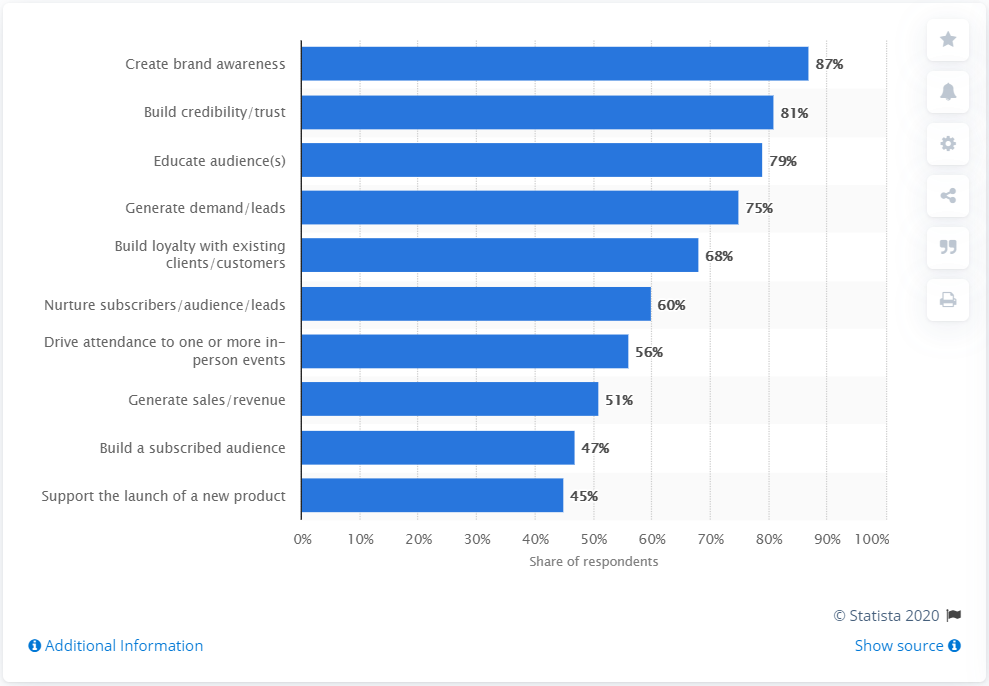
What to do: Don’t contribute to the noise. Each piece of content you publish should solve a specific problem in a nuanced fashion, target a specific audience, and connect with the reader/listener/viewer. If boosting content quality means publishing fewer pieces less frequently, so be it.
Revamped Website Interfaces and Digital Experience
Your website is your biggest touchpoint for wowing and empowering customers. Thinking of your website as a digital business card is a mistake. Your website should serve as a resource hub and connectivity tool.
What to do: Create a website experience people want to visit even if they have no intention of buying something. Think of your brand as a media company for podcasts, videos, and reading material. Include relevant tools visitors can use.
Mobile Mindfulness
Spend on mobile marketing skyrocketed by 70% during the pandemic. B2Bs should have considered long ago that buyers are viewing their content from mobile devices.

What to do: Don’t neglect mobile just because your analytics say most visitors are on desktop. Your website could be driving mobile users away with gated content, lead forms, and pop-ups.
Showing Your Good Side
Buyers and customers want to know how you’ve changed your behavior to improve the lives of others, be it customers or the community at large. It shows that you’re willing to pivot and make sacrifices for the betterment of society.
What to do: Offer personalized pricing and custom experiences. Evaluate how your customers’ or buyers’ needs have changed and considered pivots.
Audit That Bloated Martech Stack
18% expect reductions in B2B marketing budgets devoted to technology which sounds high when you realize the martech industry is booming. That’s because most brands are running bloated and costly martech stacks.
What to do: Audit your existing martech stack for cost and features. Reduce tech with overlapping features. Get your team fully trained on every piece of martech so they can leverage all the relevant features.
Multimedia Matters
With 64% of B2B buyers increasing their video consumption, marketers need to devote more time to creating high-quality videos and multimedia content.
What to do: Set up a multimedia task force for research and development or partner with a suitable agency to outsource. Don’t neglect quality here. It takes time and skill to develop interesting 360 photos, engaging videos, and professional podcasts.
Perfected PPCs
Although B2B digital ad spends decreased in 2019 after its peak in 2018, eMarketer research expects B2Bs to spend $8.14 billion this year and increase another 10.9% to $9.03 billion in 2021.
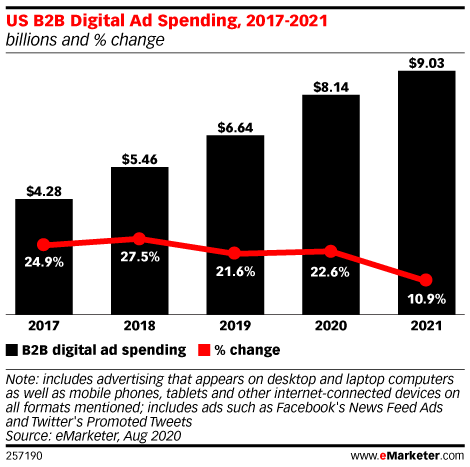
What to do: Evaluate your PPC ROI and spending. Make sure you’re not paying for irrelevant keywords. Revamp your landing pages with less salesy and more relevant content.
All About the ABM
Account-based marketing is a catch-all solution for customer retention, generic content, maximizing ROI, personalization, and more. As of February 2020, Salesforce found that 89% of B2Bs have an ABM strategy in place with most being less than five years old.
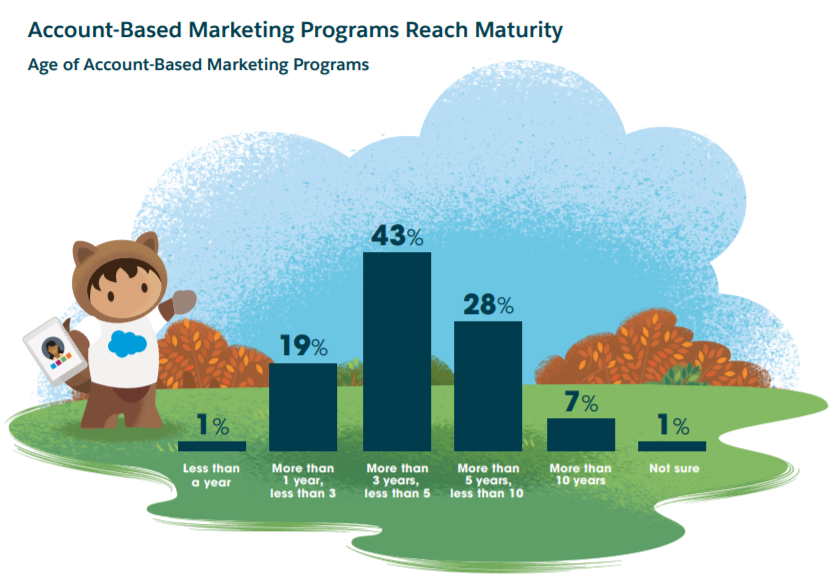
What to do: Meet with your marketing and sales teams to discuss how they envision implementing ABM. Successful ABM requires ongoing open communication between both departments.
Accessibility is Paramount
With virtually all business happening online, everyone’s website must be accessible to people of all abilities. That’s why ADA lawsuits are also on the rise this year.
What to do: Either invest in an accessible website or literally pay for it later. Fortunately, there is a set of extensive working guidelines to cover but it’s best to contact an expert.
See You in 2022
Looking at initiatives like The Great Reset from the World Economic Forum, it’s safe to say the shift we’re experiencing is just getting started. We shouldn’t expect any kind of stability to return until at least this time next year as we welcome 2022. By then, the world will look totally different: travel, power players, economies, industries, leading companies, etc.
2020 served as the catalyst for digital transformation in many ways. 2021 will be the year B2B brands fall into new routines, set fresh standards, and pivot on multiple levels. All we can do is prepare for the ride and use our B2B marketing budgets to create dynamic and flexible strategies. Godspeed! via Your B2B Marketing Budget Playbook for 2021 Success [Research]
FAQs:
1. What is B2B marketing?
B2B marketing refers to the strategies, tactics, and activities that businesses use to promote their products or services to other businesses rather than individual consumers.
It often involves targeting specific decision-makers within an organization and focuses on building relationships, generating leads, and closing deals in a business-to-business context.
2. Why is B2B marketing important?
B2B marketing is important because it allows businesses to reach and connect with other businesses to sell their products or services. It helps build brand awareness, generate leads, and drive revenue.
B2B marketing strategies also help establish credibility, trust, and long-term relationships with business customers, which are essential for sustained business growth.
3. How can I create a successful B2B marketing budget for 2021?
To create a successful B2B marketing budget for 2021, follow these steps:
– Evaluate your current marketing performance and goals
– Set realistic and measurable objectives for the year
– Assess the effectiveness of your previous marketing strategies and campaigns
– Allocate budgets to different marketing channels based on their ROI potential
– Consider investing in new growth areas, such as digital marketing and content marketing
– Monitor your budget throughout the year and make adjustments as needed
4. What are some key areas to consider when allocating my B2B marketing budget?
When allocating your B2B marketing budget, consider the following key areas:
– Digital marketing, including search engine optimization (SEO), pay-per-click (PPC) advertising, and social media marketing
– Content marketing, such as creating high-quality blog articles, videos, and downloadable resources
– Lead generation activities, like email marketing campaigns and webinars
– Event marketing, including attending or hosting industry conferences or tradeshows
– Marketing technology, such as CRM systems, marketing automation tools, and analytics software
5. How can I measure the success of my B2B marketing initiatives?
Measuring the success of your B2B marketing initiatives involves tracking relevant metrics and Key Performance Indicators (KPIs). Some common metrics to measure include:
– Return on Investment (ROI)
– Conversion rates
– Cost per lead
– Website traffic and engagement
– Social media












